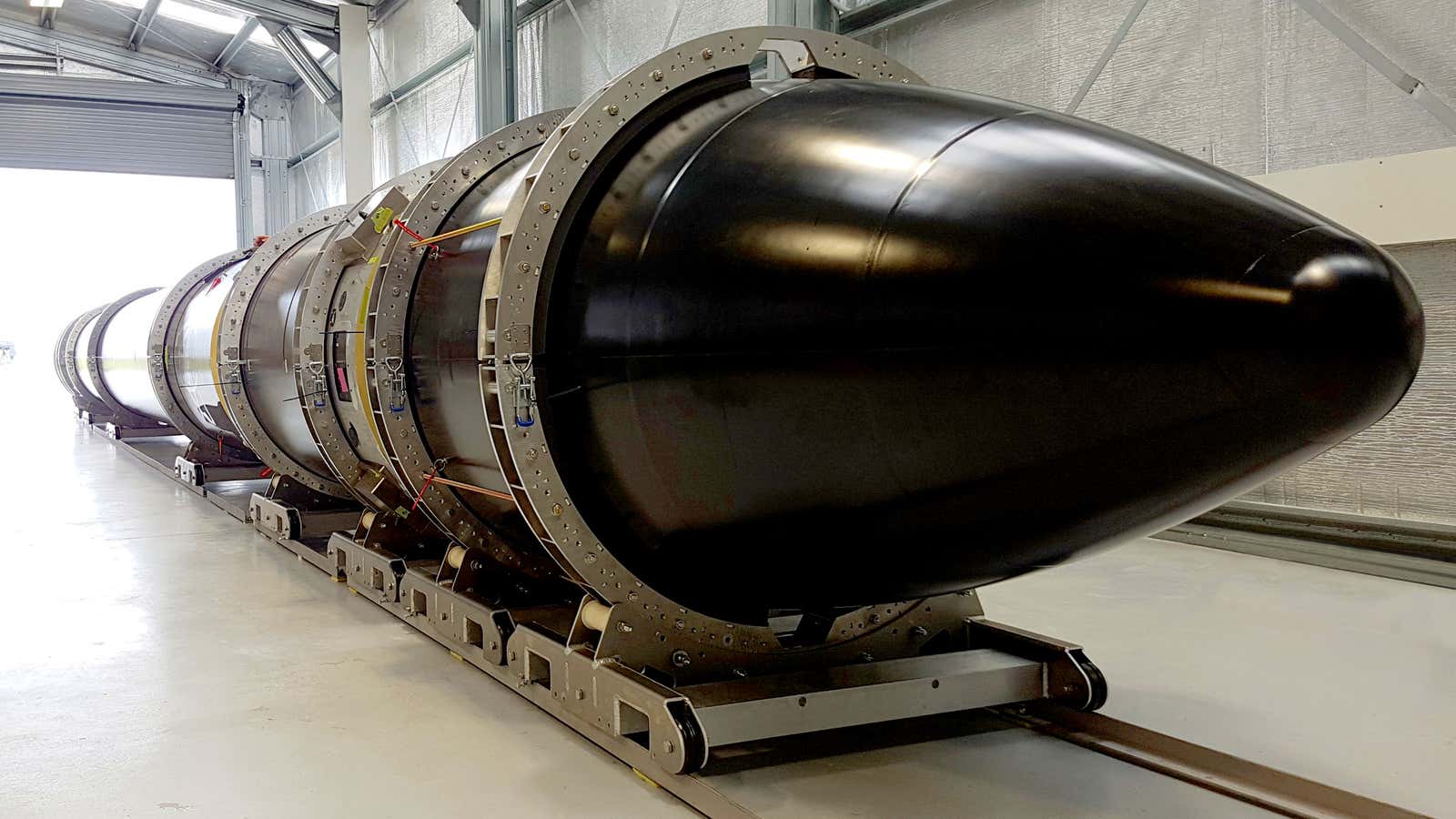Venture money is pouring into companies that promise to use small, cheap satellites to solve problems here on earth, from maximizing crop growth to accelerating internet access. But getting these satellites to space is still not as easy as it could be.
The big winners in the private space race so far have been companies with expensive, heavy satellites destined for distant orbits. Smaller satellites are still in second class. To fill the gap, a bevy of companies are developing orbital rockets dedicated to flying small satellites cheaply and often. Today one of them, Rocket Lab, set itself apart by announcing a $75 million investment, which values the company at $1 billion.
The deal is one of the largest so far in 2017, according to Preqin, a data firm that tracks venture capital; the average VC round this year has been $20.3 million.
The round was led by Data Collective (DCVC), along with Promus Ventures and an undisclosed individual. Including the latest round, Rocket Lab has raised $148 million so far to design its rocket, the Electron, as well as its New Zealand launch site and engineering centers in the US.
The rocket is expected to fly for the first time this year, following more than a year of ground testing. It’s about one third to one quarter the size of the rockets flown by SpaceX or Arianespace, the two largest commercial launch companies, and can carry a maximum of 225 kilograms (496 lb) for about $5 million. The main components of the rocket’s engine are 3-D printed, and it boasts a battery-powered turbopump, while the structure is built largely from carbon composites.
DCVC is also an investor in other space startups, notably Planet, which now operates the largest commercial satellite constellation. Planet expects to begin imaging the earth daily after launching 80 satellites from India in February. The impatience of firms like Planet with months-long launch delays is part of why DCVC invested in Rocket Lab.
“As an anchor investor in Planet…we have kind of an X-ray view of one side of this criticality or take-off moment, and we became persuaded that Rocket Lab was in fact the other side,” said Matt Ocko, a DCVC partner who joined the board of Rocket Lab after the round. “We’re seeing the access to space that Rocket Lab represents and the businesses they enable in space come to fruition roughly simultaneously.”
If may seem odd, Ocko concedes, for a fund that invests mainly in computing and artificial intelligence (even Planet is mainly a company selling the data that its satellites gather) to be putting its money into physical, flame-spewing rockets. But, he points out, a lot of Rocket Lab’s advances are really about computing breakthroughs used to ”evaluate and simulate and prune the combinatorial risk tree,” i.e. model how things might go wrong.
Peter Beck, Rocket Lab’s CEO, says the money raised will go to build out factories in the US—where aerospace engineers in Huntington Beach, California will build the engine and guidance systems—and in New Zealand, where the rocket’s physical structure is made and final assembly will occur.

“We started off with a clean sheet of paper,” Beck says. They designed the rocket to be mass produced—unlike the bespoke approach taken by many rocket makers—and to be able to be launched weekly, a currently unheard-of tempo in the industry. Test flights have been delayed, but the first one could come in the next four to eight weeks, he says.
“The important thing to remember is we are not just commissioning a launch vehicle or rocket,” Beck says. “We are also commissioning an entire launch range, [including] downrange tracking stations on remote islands in the middle of the Pacific…naturally that takes some time to get through.”
Beck says that all of his customers, including Planet and NASA, are eager to begin flight operations, but there is one client in an unusual hurry. The US company Moon Express has contracted Rocket Lab to launch a moon probe that must take off before the end of the year to vie for a $20 million prize.
“We’re certainly on track to deliver that mission,” he says. “We’re lucky to have good, patient first customers.”

